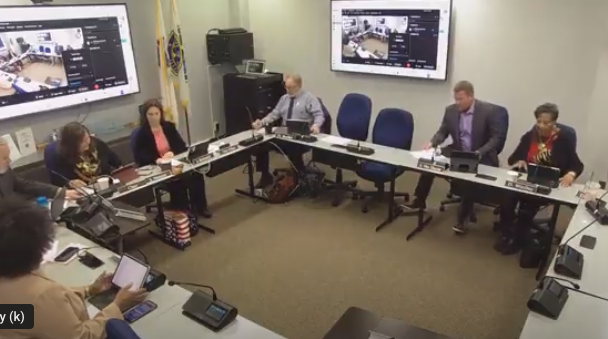JOLIET — Will County officials discovered Thursday that their current practices regarding virtual meeting attendance may not fully comply with state law, as the Ordinance Committee worked through updates to the county’s code of ordinances.
During a detailed review of Chapter 30, which governs county administration, committee members learned that while the county’s rules require a vote to allow virtual attendance at meetings, state law mandates that members must be allowed to attend virtually for certain reasons.
“If a member wishes to attend a meeting by other means, the member must notify the recording secretary,” Phil Mock of the State’s Attorney’s Office explained. “A majority of the public body may allow a member to attend a meeting by other means only in accordance with and to the extent allowed by rules adopted by the public body.”
However, Mock clarified that the county cannot deny virtual attendance if a member cites specific statutory reasons outlined in the Open Meetings Act: personal illness or disability, employment purposes, family or other emergency, or unexpected childcare needs.
“If it follows the reason… they could vote you [against attending virtually]. They’re violating the Open Meetings Act,” Mock said. “The attorney general could come in and do sanctions against them.”
The revelation surprised committee members who recalled previous instances when the county board had denied virtual attendance requests. Committee member Judy Ogala recalled, “I know when we started reviewing the rules last year, it’s like, ‘Oh, the speaker chair can do this.'”
Chief of Staff Chuck Pelky confirmed the discrepancy, noting that staff had researched prior rules and found changes had been made over time without ensuring consistency with state law.
The committee also spent considerable time discussing the requirement that every county board member serve on at least two committees. Some members questioned what happens when a board member fails to attend committee meetings.
Committee member Sherry Newquist pointed out that while the rules state this requirement, the county lacks enforcement mechanisms: “We have had members who for one reason or another just won’t come to — stopped going to committee meetings… we have no recourse if someone just stops.”
Member Don Bullock defended the current language, noting, “Usually being on a committee is something that is a favor, like people would receive that well, like ‘Thank you for putting me on a committee.'”
Several members noted that while the county cannot remove elected officials who don’t attend meetings, requiring committee assignments creates expectations for potential candidates.
“By having in our rules and in the ordinance saying that you have to be at least on two committees, it gives someone who’s running an idea of the expectation,” Freeman said.
The committee ultimately decided to maintain the current language requiring two committee assignments while acknowledging the limitation that, as Mock put it, “Legally, you can be elected and never even go to a meeting. You don’t even have to do anything. You’re elected until the voters vote you out.”
The committee plans to continue its systematic review of county ordinances in future meetings.


